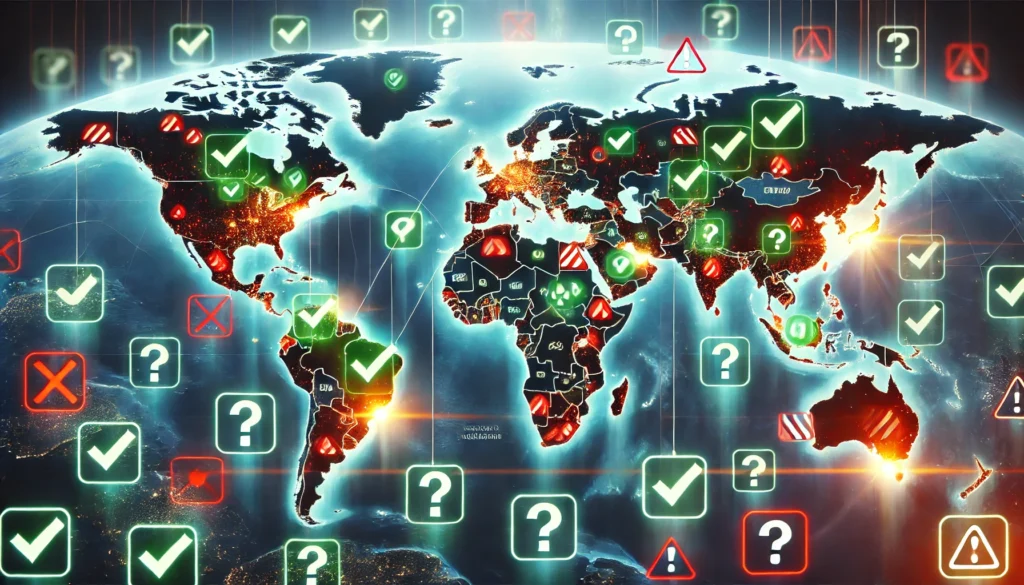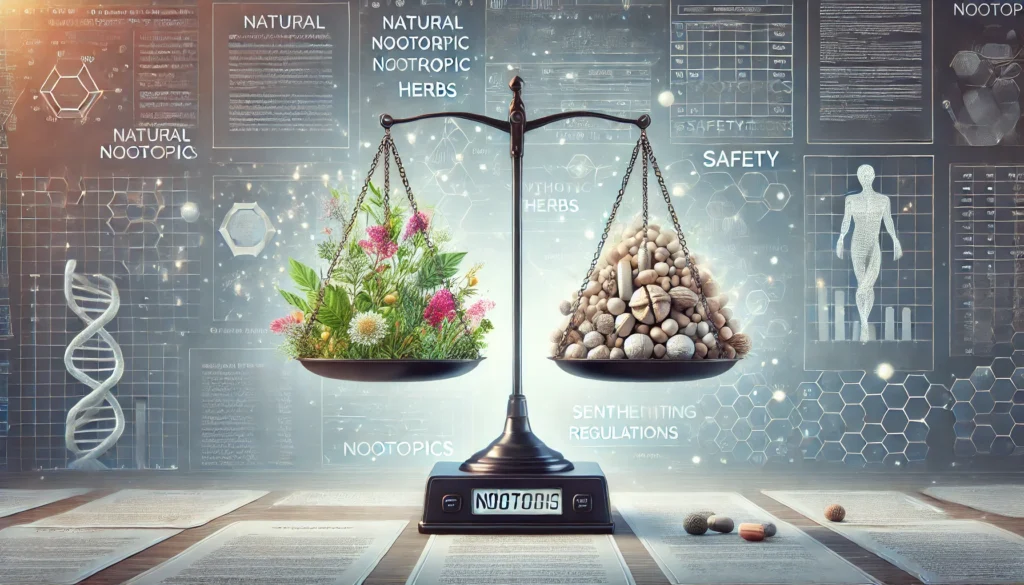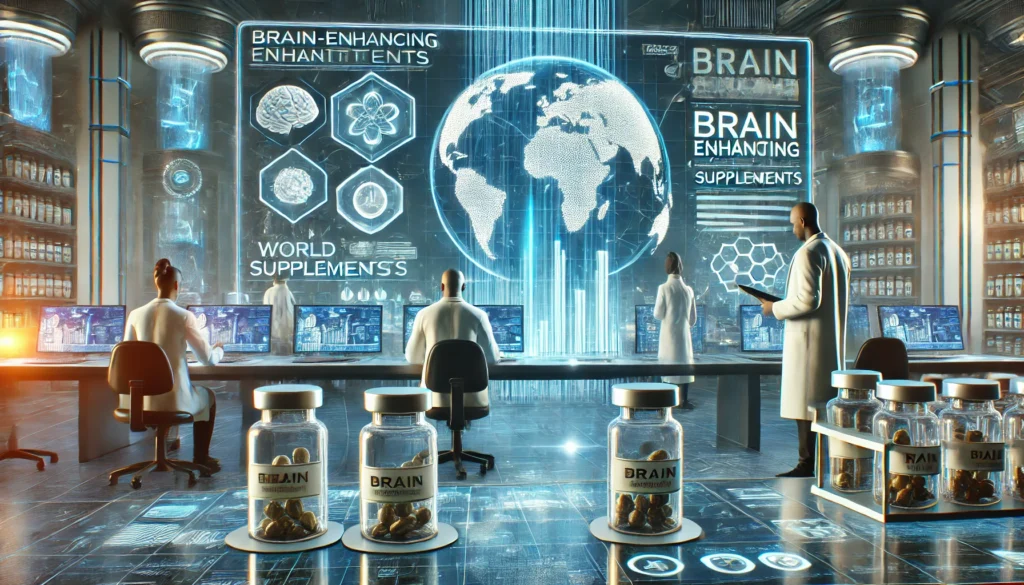Introduction
Nootropics, also known as cognitive enhancers or “smart drugs,” have gained widespread attention for their potential to improve memory, focus, and overall brain function. As these substances continue to rise in popularity, their legal status remains a complex and evolving issue across different countries and jurisdictions. The question “Are nootropics legal?” is not as straightforward as one might assume, given the varying regulations and policies that govern their use worldwide. Factors such as prescription requirements, potential for abuse, and ethical concerns all contribute to the intricate legal landscape surrounding these substances.
You may also like: The Sleep-Inducing Effects of Chicken
Additionally, the increasing demand for cognition-enhancing medication for conditions such as narcolepsy and attention deficit hyperactivity disorder (ADHD) has sparked debates over accessibility, medical necessity, and misuse. With brain doping drugs becoming more prevalent among students, professionals, and athletes seeking a competitive edge, regulatory authorities are faced with the challenge of balancing innovation with safety and ethical considerations.
This article will explore the legal status of nootropics in different regions, examine the safety concerns associated with their use, and analyze the implications of cognitive enhancement on society. By understanding the regulations and policies that govern these substances, consumers can make informed decisions while ensuring compliance with the law.

Defining Nootropics: What Are They?
The term “nootropic” was first coined in the 1970s by Romanian psychologist and chemist Dr. Corneliu Giurgea, who defined them as substances that enhance cognitive function while being safe and neuroprotective. Nootropics can be classified into several categories, including prescription medications, dietary supplements, and synthetic compounds. While some are well-researched and approved for medical use, others exist in a legal gray area due to a lack of regulatory oversight.
Prescription nootropics, such as modafinil and methylphenidate, are primarily used to treat conditions like narcolepsy and ADHD. These cognition-enhancing medications help regulate neurotransmitter activity, improving wakefulness and focus in individuals with medical conditions. However, their off-label use among healthy individuals has raised concerns about safety and ethical implications.
Over-the-counter (OTC) and natural nootropics, including substances like caffeine, L-theanine, and ginseng, are widely available and commonly used for their mild cognitive-enhancing effects. While generally regarded as safe, the lack of strict regulation in the supplement industry means that consumers must exercise caution when selecting products.
Synthetic nootropics, such as racetams and ampakines, are often marketed as research compounds with limited clinical data on their long-term effects. The legal status of these substances varies significantly depending on the country, with some being freely available and others strictly controlled.
Global Legal Landscape of Nootropics
United States
In the United States, the legal status of nootropics depends on their classification. Prescription nootropics, such as modafinil (Provigil) and Adderall (amphetamine salts), are classified as controlled substances and require a prescription from a licensed medical professional. These medications are primarily prescribed for conditions like narcolepsy, ADHD, and sleep disorders but are frequently misused as cognitive enhancers.
OTC and dietary supplement nootropics fall under the jurisdiction of the Food and Drug Administration (FDA) and the Dietary Supplement Health and Education Act (DSHEA). While many natural nootropics are legally sold as supplements, their manufacturers are prohibited from making explicit claims about cognitive enhancement without scientific evidence. The FDA has issued warnings against certain nootropic products that contain unapproved or potentially unsafe ingredients.
Synthetic nootropics, such as racetams, exist in a legal gray area. While some, like piracetam, are available for purchase as research chemicals, they are not approved for human consumption by the FDA. This ambiguous legal status means that consumers may access these substances online, but their safety and efficacy remain unregulated.
European Union
The European Union (EU) has diverse regulations regarding nootropics, as each member state enforces its own policies. Prescription nootropics like modafinil and methylphenidate are tightly regulated and typically require a doctor’s prescription. In some countries, such as the United Kingdom, modafinil is classified as a prescription-only medication, while in others, it is subject to stricter controls.
Dietary supplement nootropics, including herbal and natural compounds, are widely available across Europe. However, the European Food Safety Authority (EFSA) monitors claims made by manufacturers to ensure compliance with safety regulations. Some synthetic nootropics, such as piracetam, are available in certain EU countries as prescription drugs, while in others, they are not approved for human use.
Asia
The legal status of nootropics in Asia varies significantly by country. In Japan and South Korea, many prescription nootropics are tightly controlled, requiring medical documentation for access. In contrast, China has a more lenient approach to nootropic sales, with several synthetic compounds being openly available.
India has a robust pharmaceutical industry and allows the sale of certain nootropics without a prescription. However, the lack of stringent regulations raises concerns about product quality and authenticity. Consumers must be cautious when purchasing nootropics in regions with less oversight to ensure they are obtaining safe and legitimate products.
Australia and New Zealand
Australia and New Zealand have strict regulations on prescription nootropics, requiring a doctor’s prescription for substances like modafinil and methylphenidate. The Therapeutic Goods Administration (TGA) in Australia and the New Zealand Medicines and Medical Devices Safety Authority (Medsafe) oversee the approval and distribution of cognitive-enhancing medications. OTC and natural nootropics are generally available, but synthetic compounds like racetams may be classified as unapproved medicines.
Ethical and Safety Concerns Surrounding Nootropics
As the use of nootropics expands beyond medical applications, ethical and safety concerns have become prominent topics of discussion. One major issue is the potential for misuse, particularly among students and professionals seeking cognitive enhancement. The use of brain doping drugs raises questions about fairness, long-term health effects, and the pressure to perform at higher levels.
Safety is another critical concern, as many nootropics lack comprehensive research on their long-term effects. While prescription cognition-enhancing medications for ADHD and narcolepsy have undergone rigorous testing, synthetic and OTC nootropics may carry unknown risks. Adverse effects, interactions with other medications, and potential dependency are factors that must be considered when evaluating nootropic use.

Frequently Asked Questions (FAQ) on Nootropics, Regulations, and Safety
1. Are nootropics legal in all countries?
The legal status of nootropics varies significantly depending on the country and the classification of the substance. In some regions, such as the United States, prescription nootropics are tightly regulated, whereas over-the-counter cognitive enhancers are widely available. Countries like Japan and South Korea impose strict controls on brain doping drugs, requiring extensive medical documentation for access. Meanwhile, nations with more lenient pharmaceutical regulations, such as India and China, allow for broader availability, sometimes without a prescription. To ensure compliance with local laws, individuals should research specific regulations before purchasing or traveling with nootropics.
2. How do nootropics compare to traditional medications for cognition enhancement?
Prescription medications like modafinil and methylphenidate are clinically tested for conditions such as narcolepsy and ADHD, making them more reliable in medical contexts. In contrast, many over-the-counter nootropics are marketed as supplements and lack the same level of regulatory oversight. While natural options like ginkgo biloba and L-theanine have been studied for cognitive benefits, their effects are generally milder than prescription alternatives. The main advantage of prescription cognition-enhancing medication for ADHD and narcolepsy is its targeted action and consistency, whereas supplements may vary in potency and efficacy. Users should consider their specific needs and consult healthcare professionals before choosing a nootropic.
3. What are the potential risks of using nootropics without a prescription?
Unregulated nootropic use poses risks such as unknown long-term effects, dependency, and interactions with other medications. Brain doping drugs like modafinil and amphetamines can lead to side effects such as increased heart rate, anxiety, and insomnia if misused. Additionally, synthetic nootropics purchased online may not meet quality standards, increasing the risk of contamination or incorrect dosages. The potential for cognitive enhancement must be weighed against the legal and health risks, especially for individuals self-medicating without medical supervision. Responsible use and sourcing from reputable suppliers can help mitigate some of these concerns.
4. Why are prescription nootropics for narcolepsy and ADHD tightly regulated?
Prescription cognition-enhancing medication for ADHD and narcolepsy is regulated due to its potential for abuse and dependency. These medications act on neurotransmitter systems that influence attention, wakefulness, and impulse control, making them highly effective but also prone to misuse. Governments implement strict prescription requirements to prevent unauthorized distribution and recreational use, particularly among students and professionals seeking cognitive enhancement. Some countries classify these drugs as controlled substances, requiring periodic medical evaluations for continued access. Despite their restrictions, these medications remain essential for individuals with diagnosed cognitive disorders, significantly improving their quality of life.
5. What is the ethical debate surrounding brain doping drugs?
The ethics of brain doping drugs revolve around fairness, safety, and societal implications. Some argue that cognitive enhancers create an uneven playing field, particularly in academic and professional settings where competition is intense. Others worry about the normalization of nootropic use, potentially pressuring individuals to take them just to keep up with peers. Long-term societal consequences, such as dependency on pharmaceuticals for productivity, also raise ethical concerns. While cognitive enhancement is appealing, ethical discussions continue regarding personal autonomy versus the broader implications for public health and social equity.
6. How do nootropic regulations impact scientific research and innovation?
Stringent regulations on brain doping drugs can slow scientific progress by limiting access for research purposes. Many promising nootropics remain under-studied due to legal hurdles that make obtaining research approvals difficult. However, these regulations are intended to ensure safety and prevent premature commercialization of unverified substances. Some scientists advocate for more flexible policies that allow for controlled research on emerging cognition-enhancing compounds. Balancing innovation with public safety remains a challenge, requiring collaboration between regulatory agencies, researchers, and pharmaceutical companies.
7. What are some natural alternatives to synthetic nootropics?
Many natural substances offer cognitive benefits without the legal and safety concerns of synthetic nootropics. Adaptogens like rhodiola rosea and ashwagandha support mental resilience by reducing stress and improving focus. Omega-3 fatty acids, found in fish oil, enhance brain function and memory over time. Herbal nootropics like bacopa monnieri and ginseng have been used in traditional medicine to support cognitive performance. While their effects may not be as immediate as prescription cognition-enhancing medication for ADHD and narcolepsy, they provide a safer and more sustainable approach to mental clarity. Choosing the right nootropic depends on individual needs and long-term health goals.
8. Can nootropics be used as a treatment for age-related cognitive decline?
Certain nootropics show promise in slowing age-related cognitive decline, but their effectiveness varies based on the compound and individual factors. Prescription medications like donepezil are used for conditions such as Alzheimer’s disease, while natural compounds like resveratrol and curcumin have neuroprotective properties. Some nootropics support brain plasticity, enhancing memory retention and reducing cognitive fatigue in aging populations. However, research is ongoing, and no single compound has been proven to completely prevent cognitive decline. A holistic approach, including a healthy diet, exercise, and mental stimulation, is essential for maintaining brain health in later years.
9. How do nootropics affect sleep patterns and energy levels?
The impact of nootropics on sleep and energy levels depends on their mechanism of action. Stimulant-based brain doping drugs like modafinil promote wakefulness but can lead to sleep disturbances if taken too late in the day. Conversely, nootropics such as L-theanine and magnesium support relaxation and improve sleep quality. Some adaptogenic nootropics, like cordyceps, enhance energy without disrupting natural circadian rhythms. Understanding individual responses and timing nootropic intake appropriately can optimize their benefits while minimizing adverse effects. Maintaining a balanced approach ensures that cognitive enhancement does not come at the cost of overall well-being.
10. What does the future hold for nootropic development and regulation?
The future of nootropics is likely to involve advancements in personalized medicine and targeted cognitive enhancement. As neuroscience progresses, researchers are developing precision nootropics that cater to individual genetic profiles and cognitive needs. Regulatory bodies will need to adapt to these innovations, ensuring that safety standards evolve alongside new discoveries. Ethical considerations will also play a crucial role, shaping policies on accessibility, fair use, and medical necessity. The growing demand for cognitive enhancement underscores the importance of responsible regulation and continued scientific inquiry into the long-term implications of nootropic use.

Conclusion
The legal status of nootropics is a complex and evolving issue that varies significantly across different countries and jurisdictions. While some cognition-enhancing medications for ADHD and narcolepsy are tightly regulated, OTC and synthetic nootropics exist in legal gray areas. Consumers must navigate these regulations carefully to ensure compliance with local laws while considering the ethical and safety implications of nootropic use.
As research on cognitive enhancement continues to advance, regulatory authorities will need to balance accessibility with safety to protect consumers from potential risks. By staying informed about the legal landscape and making educated decisions, individuals can responsibly explore the benefits of nootropics while minimizing potential harm.
Further Reading:
What are nootropics, or ‘smart drugs’?
Regulatory Landscape of the Nootropics Market: Challenges and Opportunities
Are Nootropics Legal? And 5 Other Questions You May Want Answered
nootropic supplements, cognitive enhancers, smart drugs, memory boosting pills, focus improvement supplements, neuroenhancement, brain performance boosters, cognitive function support, mental clarity aids, brain health supplements, nootropic research, cognitive optimization, executive function boosters, study aids for concentration, nootropic safety guidelines, natural brain boosters, legal status of smart drugs, pharmaceutical nootropics, cognitive enhancement strategies, brain boosting compounds
.Important Note: The information contained in this article is for general informational purposes only, and should not be construed as health or medical advice, nor is it intended to diagnose, prevent, treat, or cure any disease or health condition. Before embarking on any diet, fitness regimen, or program of nutritional supplementation, it is advisable to consult your healthcare professional in order to determine its safety and probable efficacy in terms of your individual state of health.
Regarding Nutritional Supplements Or Other Non-Prescription Health Products: If any nutritional supplements or other non-prescription health products are mentioned in the foregoing article, any claims or statements made about them have not been evaluated by the U.S. Food and Drug Administration, and such nutritional supplements or other health products are not intended to diagnose, treat, cure, or prevent any disease.


